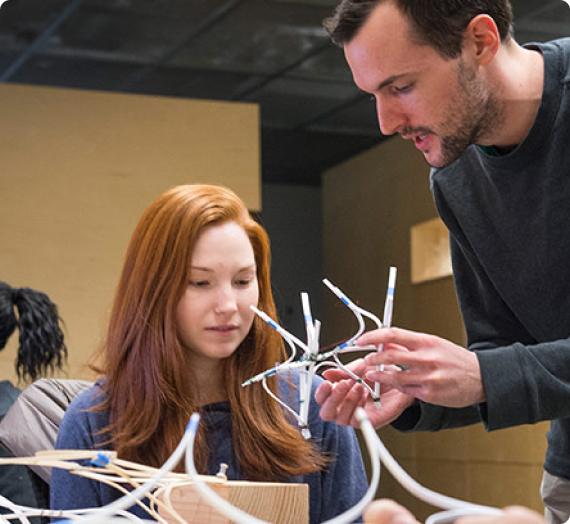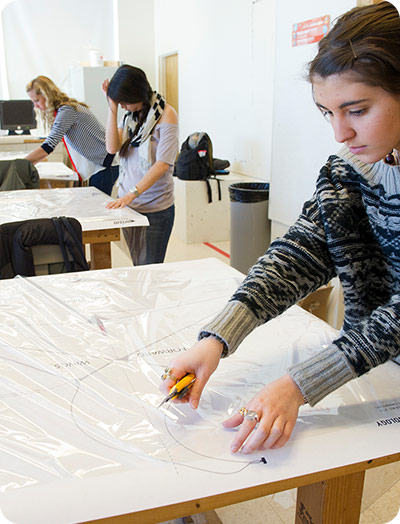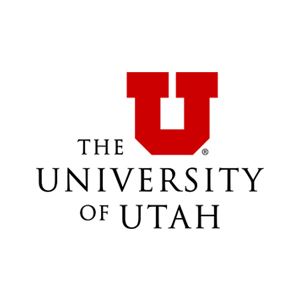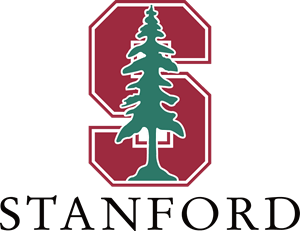Join Us for the 2025 a2ru Conference
Creative Futures: Driving Interdisciplinary Innovation Through the Arts
October 23-25, 2025 at the University of Wisconsin—Madison
Featured

a2ru Ground Works Awarded 2025 ACLS Digital Justice Development Grant for “Reco(r)ding CripTech”
The program supports digital humanities projects that enrich cultural heritage through the intentional use of technolog
Blog; a2ru News, Funding, Ground Works
Upcoming Events
Creating Knowledge in Common, Together: A Round Table
2025 a2ru Conference: “Creative Futures: Driving Interdisciplinary Innovation Through the Arts”
Nominations Now Open for 2025 a2ru Awards for Excellence in Arts in Health Education
This award is now in its third year
University of Utah College of Fine Art Invests in Arts in Health Innovation
A new faculty fellowship from its Arts & Health Innovation Lab support interdisciplinary research
a2ru Seeks Executive Committee Nominations for 2025
Elected leaders will serve three year terms starting in September
a2ru Publications
a2ru’s online, peer-reviewed journals highlight outstanding arts-integrative research and pedagogy in higher education, providing valuable opportunities for scholars to share their innovative, field-building work.
Learn more about a2ru Journals
Tradition Innovations in Arts, Design, and Media Higher Education
Published in partnership with a2ru partner institution UNLV, Tradition Innovations provides a multimedia forum to explore how evolving digital technologies foster innovation in the interwoven work of teaching-researching-creating, while supporting the best of traditional practices in arts, design, and media disciplines.a2ru Working Groups
a2ru Working Groups provide year-round opportunities for our members to share knowledge and best practices, collaboratively develop action and research plans, and to pursue shared funding.
JOIN THE CONVERSATION
Member Spotlight
The Arts at the University of Utah
UtahPresents is the multi-disciplinary arts presenter at the University of Utah, bringing a wide range of arts and culture experiences to campus and the region. Utah has a particularly strong range of programs in arts in health, including the Program in Medical Ethics and Humanities , the Resiliency Center, and the Linda B. and Robert B. Wiggins Wellness and Integrative Health Center at the Huntsman Cancer Institute.
The Arts at Stanford
Stanford Arts is a constellation of institutions, departments, programs, and people that aims to unleash the full potential of the arts on campus and in our communities. Through this active network, we leverage the distinctive strengths of one of the world’s leading research universities to provide meaningful arts experiences, integrate scholarship and making across disciplines, and apply the transformative power of art to the public good.
The division of the Vice Presidency for the Arts (VPA) was created in 2017 to raise the visibility and collective impact of the arts on campus. Three iconic arts organizations – Anderson Collection at Stanford University, Cantor Arts Center, and Stanford Live – offer exhibitions, performances, and programs to a broad audience drawn from the Stanford community as well as the greater San Francisco Bay Area. Two impactful interdisciplinary institutes – Institute for Diversity in the Arts and the Stanford Arts Institute – are centers of student-focused learning, research, and practice. The central VPA office creates pathways for arts engagement and impact through advocacy, coordination, ecosystem support, and interdisciplinary initiatives.
The School of Humanities and Sciences (H&S) is the center of a liberal arts education at Stanford and houses the academic arts departments: Art & Art History, Music, and Theater & Performance Studies as well as a Creative Writing program. The University’s Public Art Committee ensures that Stanford’s robust public art program continues to grow and thoughtfully integrate across the campus landscape, in the Arts District and beyond. There are also dozens of exhibition and performance spaces on campus used by more than 100 student art groups. The proximity and density of these arts programs and activities allows for dynamic interactions among them.
Across these programs and more, we cultivate the creative spark and cutting-edge work of interdisciplinary practitioners to demonstrate Stanford’s distinct “arts plus…” environment. Theater-makers plus astrophysicists. Sculptors plus infectious disease researchers. Together, we pursue ambitious ideas and collaborative projects to shift culture and policy, and demonstrate the consequential creativity possible only at Stanford.
The Arts at the University of Florida
The College of the Arts at the University of Florida combines rigorous disciplinary training and interdisciplinary innovation. Students receive world-class instruction in the School of Art & Art History, the School of Music, and the School of Theatre & Dance. A trio of cutting-edge interdisciplinary centers & institutes connect the arts with a broad range of other disciplines including the sciences, allied health fields, business, and engineering. The Center for Arts in Medicine is an internally regarded leader in the arts in health field. The Center for Arts, Entrepreneurship, and Migration connects networks of scholars, artists, creatives, entrepreneurs, and advocates to the engines of creative and cultural economics at the heart of migration. The Digital Worlds Institute is a recognized leader in combining arts, communications, engineering and science, with a focus on advanced media systems.
UF College of the Arts Go Greater from UF College of the Arts on Vimeo.

The Creative Placemaking Resource Hub is a living archive of creative placemaking and placekeeping scholarship and practice, building on the archives of ArtPlace America’s decade of field-building work. It is designed for the students, teachers, artists, and community leaders who move the field forward.
Learn More





